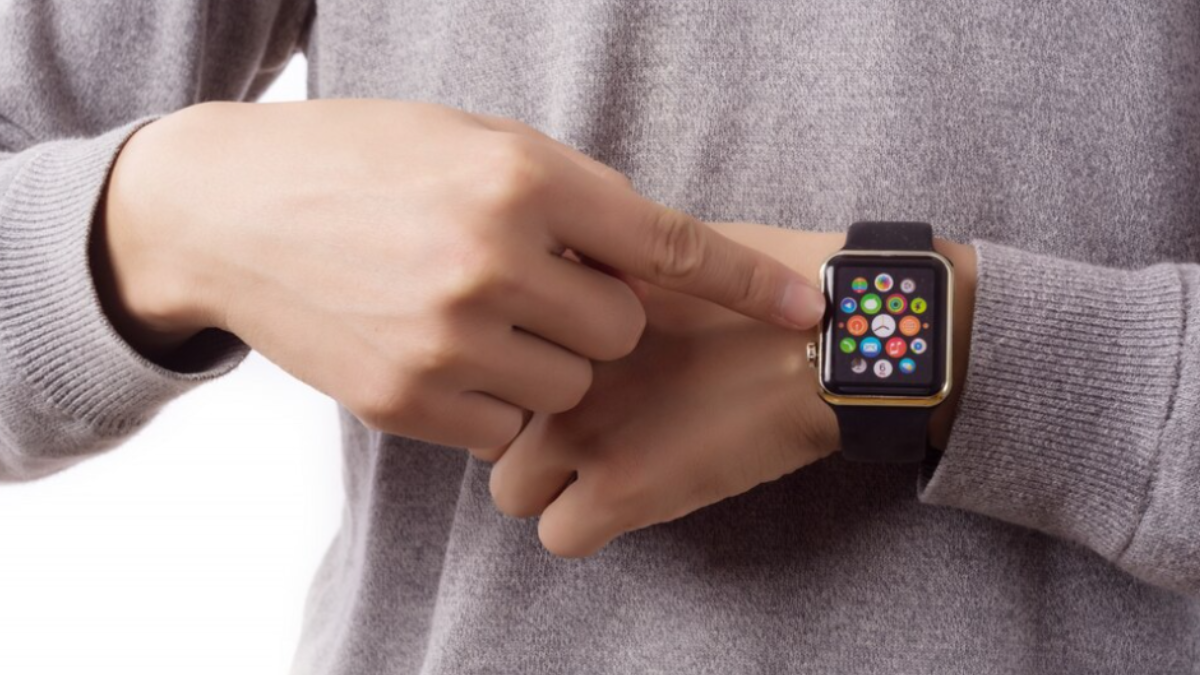
A marketing tactic that most smartwatch manufacturers use is savvy digital features to help monitor our health stats. At the recent launch of their new products, Apple took the same route to promote the release of the Apple Watch Series 9. Showcasing their new offering, the company announced how they have added new health features to this latest smartwatch.
Table of Content:-
Joining the line of numerous smartwatches that have flooded the market, the Apple Watch offers basic features like counting your daily steps, which no doubt is beneficial as has been pointed out by a study from Penn State. Researchers at Penn State showed that participants who were averaging below 50% of the recommended activity level had increased their daily step count by 73% due to the use of smartwatches.
However, features such as heartbeat monitoring, ECG, and blood oxygen readings beg the question, are smartwatches being used to compensate for credible medical diagnosis? Additionally, as any technological device has medical pitfalls of its own, how safe is the consistent use of smartwatches?
Benefits of Using Smartwatches for Health

In today's tech-savvy world, smartwatches have become more than just stylish accessories; they're powerful tools for health monitoring. These wearable devices offer a convenient way to keep tabs on crucial aspects of our well-being, which are often neglected or hard to track in our daily lives.
Also Read: Newly Launched Apple Watch Has Fertility Tracking Feature, Here’s What To Know
- Convenience and Accessibility: Smartwatches provide real-time health data at your fingertips, making it easy to monitor your fitness, heart rate, sleep patterns, and more, wherever you are.
- Activity Tracking: They serve as excellent fitness companions, tracking steps, distance, calories burned, and even offering workout guidance. This encourages users to stay active and maintain a healthy lifestyle.
- Heart Rate Monitoring: Smartwatches can continuously monitor your heart rate, allowing you to spot irregularities or fluctuations that may indicate health concerns. In March of 2023, news broke that a 36-year-old man noticed that his smartwatch had been alerting him throughout the night that his heartbeat was not regular. This way, his watch actually helped him seek an appropriate diagnosis for a serious health concern.
- Sleep Tracking: Many smartwatches also analyse your sleep patterns, helping you identify and address sleep issues that can impact overall health, or are a symptom of an underlying health issue.
- Health Insights: Some smartwatches offer insights into stress levels, allowing users to manage stress effectively. They can also provide reminders to move or breathe, promoting mindfulness.
- Customisation and Integration: Many smartwatches allow you to personalise your health goals and integrate health apps, making it easier to track progress and share data with healthcare professionals.
Dangers Of Smartwatch

The incident of the 36-year-old man with a heart condition is a drop in the ocean of cases that show the positive effects of being a smartwatch user. However, like any technology, smartwatches also come with both benefits and potential drawbacks:
Also Read: Tracking Progress: How To Avoid Getting Discouraged In First 30 Days Of Transformation
- Accuracy and Reliability: Smartwatches may not always provide completely accurate data, particularly in medical-grade monitoring. Relying solely on their readings without consulting a healthcare professional can be risky.
- Privacy Concerns: Health data collected by smartwatches can be sensitive. You should be cautious about how your data is stored, shared, and used by manufacturers and third-party apps.
- Limited Medical Diagnostics: Smartwatches can provide useful insights, but they are not a substitute for medical diagnosis. They may raise false alarms or miss critical health issues.
- Cost: High-quality smartwatches with advanced health features can be expensive, and there may be additional costs associated with app subscriptions or accessories. Ultimately, you may find that a yearly full-body checkup is much cheaper than frequently investing in a smartwatch.
- Dependency: Some users may become overly reliant on their smartwatches for health information, potentially neglecting other essential aspects of healthcare, such as regular check-ups with healthcare professionals.
It is clear that the benefits of using a smartwatch for health tracking far outweigh the risks. If you are a disciplined person with a strong hold on your willpower, then using smartwatches efficiently to optimise your health efforts should not be a tedious task for you. However, you still need to be mindful of the potential drawbacks of smartwatches and assess the features of the watch you are looking to purchase, because these risks might seem small, but can cause serious neglect that can have huge repercussions. Lastly, ensure that you use smartwatches as complementary devices rather than sole sources of medical information.
Also watch this video
Read Next
World Suicide Prevention Day 2023: How Stigma Around Mental Illness Contributes To Suicide Risk
How we keep this article up to date:
We work with experts and keep a close eye on the latest in health and wellness. Whenever there is a new research or helpful information, we update our articles with accurate and useful advice.
Current Version